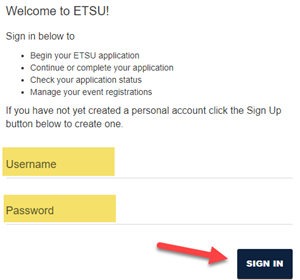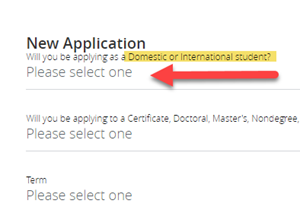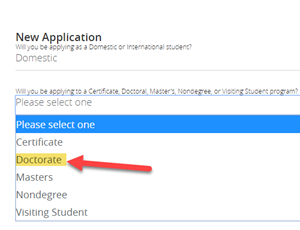Ph.D. Early Childhood
Scholars and Leaders
This is one of a limited number of programs in the country that focuses solely on early childhood. Students and faculty are reflective partners actively engaged in pursuing the knowledge, skills, and dispositions to be teachers, researchers, professionals, and leaders in early care and education.
Further understand early childhood education by exploring its history, influences, and modern methodologies through curriculum informed by the conceptual framework and principles of the National Association for the Education of Young Children (NAEYC). Students have the opportunity to study behavior, explore the latest research for early childhood programs, and uncover innovative practices and trends that serve the diverse needs of children.
Become a scholar and a leader in the Early Childhood Education program, where knowledge meets action to impact the future of early childhood education.
Professional Preparation
Student will consider social and cultural diversity within children and families while studying what influences young learners, teachers, and families. Students also have the opportunity to publish in peer-reviewed journals, strengthen collaborative skills in grant writing, and delve into pivotal social and educational policy issues shaping literacy learning.
Professional applications for the Early Childhood Education, Ph.D., include many career opportunities. Among others, students may:
- teach at a community college or 4-year college/university
- be involved in education leadership opportunities (local district, state, education organizations) and educational publishing companies
- oversee private early childhood programs
- pursue positions where the focus is on young children (nutrition, physical therapy, etc.)
This mostly online degree program requires completion of 69-84 semester credit hours. Students have seven calendar years from the date of initial registration to complete and successfully defend a dissertation.
"Mostly Online" means that all coursework will be completed online with one required intensive session on campus per semester.
Program information including curriculum and graduation requirements can be found in the ETSU Graduate Catalog.
Become an Education Leader
Steps to Apply
-
Step 1 - Create your ETSU Application Account
Step 1 Create your ETSU Application Account by choosing the "Sign Up" option

-
Step 2 - Sign into the ETSU Application Portal
Step 2 Sign in to the ETSU Application Portal and select "Start a New Application"

-
Step 3 - Complete the Remaining Fields
Step 3 Choose "Graduate," select your student type (domestic or international), select "Doctorate,"
term, then choose
Ph.D. Early Childhood and complete the remainder of the form.


Step 1 - Create your ETSU Application Account
Step 1 Create your ETSU Application Account by choosing the "Sign Up" option

Step 2 - Sign into the ETSU Application Portal
Step 2 Sign in to the ETSU Application Portal and select "Start a New Application"

Step 3 - Complete the Remaining Fields
Step 3 Choose "Graduate," select your student type (domestic or international), select "Doctorate," term, then choose Ph.D. Early Childhood and complete the remainder of the form.


Cost
Credits to complete this program: 69-84 credit hours
| TN Residents | *eRate | Out of State |
|---|---|---|
| $672 per credit hour | $835.50 per credit hour | $1,513 per credit hour |
| - The *eRate applies to students living out of state and taking all web-based courses. - Additional fees may be required. - Visit the Paying for College page to read more about costs and financial aid options. - The costs associated with attending ETSU can include both direct and indirect costs. Please review ETSU's Cost of Attendance for more details. |
||
Frequently Asked Questions
-
What accreditations apply to this program?
East Tennessee State University is accredited by the Southern Association of Colleges and Schools Commission on Colleges (SACSCOC) to award baccalaureate, master’s, education specialist, and doctoral degrees. East Tennessee State University also may offer credentials such as certificates and diplomas at approved degree levels. Questions about the accreditation of East Tennessee State University may be directed in writing to the Southern Association of Colleges and Schools Commission on Colleges at 1866 Southern Lane, Decatur, GA 30033-4097, by calling (404) 679-4500, or by using information available on SACSCOC's website (www.sacscoc.org).
-
Does a student's master’s degree have to be related to this field?
This program requires a Master's Degree in Early Childhood or a related field from a regionally accredited university.
-
Does this program require the GRE?
The GRE is required for this program. There is no cut-off score, but the department uses the GRE to provide information on how to best support its students.
-
Are the courses for this program asynchronous or synchronous?
The program offers two types of cohorts: synchronous on-campus cohorts and hybrid cohorts. Hybrid cohorts are mostly online, with one on-campus session scheduled for a Friday-Saturday weekend each semester. Instructors for hybrid cohorts typically design courses to be mostly asynchronous, with occasional synchronous Zoom meetings, ensuring flexibility to accommodate students’ schedules.
-
What percentage of synchronous courses should a student be expected to take?
Hybrid cohort courses are primarily asynchronous. However, instructors may schedule occasional synchronous Zoom meetings to accommodate students' schedules. Additionally, hybrid cohorts are required to attend an on-campus Friday-Saturday session each semester, typically held mid-semester. Students are informed of these meeting dates at least two semesters in advance to allow ample time for travel planning.
-
Does this program require a dissertation or internship?
The program of study requires a dissertation.
There are also two apprenticeship options, generally with faculty but sometimes with leaders in the field. One is a research apprenticeship, working on a research project of a faculty member; and there are options for the second apprenticeship. These are:
- University teaching – teaching an undergraduate course for the department
- Teacher development – developing modules for professional development for others in the field
- Early Intervention – working with an early intervention practitioner in the field
- Leadership – working with a leader in the field
-
What is the time to completion?
Full-time students typically complete the program in 4.5-5 years.
Part-time students typically complete the program in 5-7 years.
-
Are scholarships available?
Students are encouraged to visit the Paying for Graduate School website for information regarding ETSU graduate scholarships and other financial resources.
 Stout Drive Road Closure
Stout Drive Road Closure 